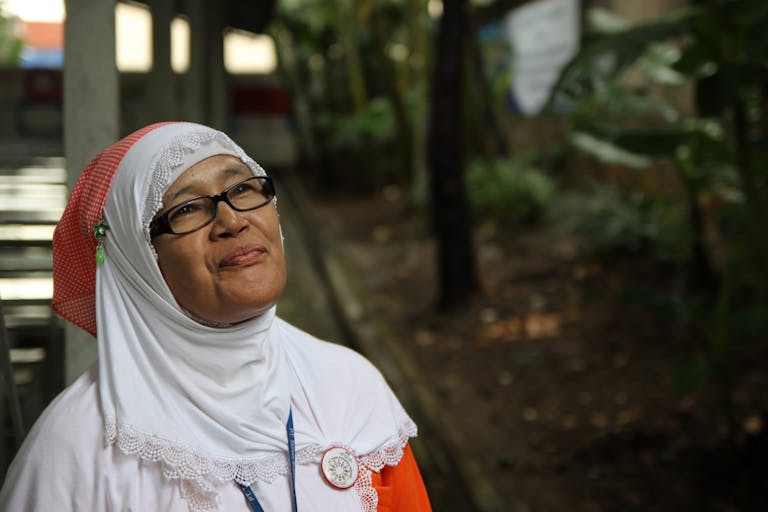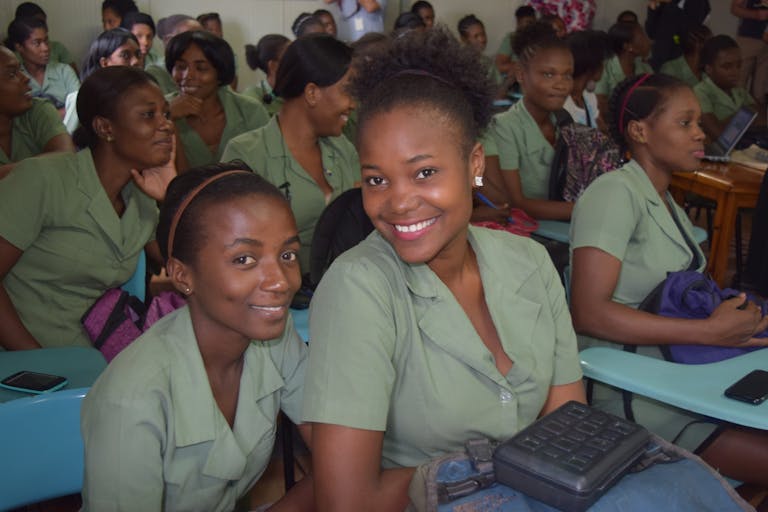Despite the urgent need to provide immediate relief to women harmed by the COVID-19 pandemic, we cannot ignore the roots of why women are more vulnerable in these crises.
The impact on women is particularly evident across global value chains, especially in sectors like agriculture and apparel where women make up the majority of the workforce. Girls and women are bearing disproportionate economic, health, safety, and caregiving burdens, while hard-fought advances in gender equality are being wiped away in the blink of an eye.
We simply must invest in the long-term recovery and resilience of women who form the backbone of the global workforce — even as we address urgent needs ranging from meeting essential health and rights needs to protecting against the “shadow pandemic” of gender-based violence.

A resilience Fund for Women
An innovative fund, launching today, aims to do just that by galvanizing a new approach to corporate investment and philanthropy. The Resilience Fund for Women in Global Value Chains pools resources from global corporations, corporate foundations, and private foundations into a collaborative fund that provides unrestricted funding to organizations in the Global South — trusting local and regional women’s funds, female-led organizations, and feminist leaders to know what their own communities need. Through this model, recipients can channel resources where they will have the strongest impact amid the COVID-19 pandemic and beyond.
The Fund, an initiative of BSR, the United Nations Foundation’s Universal Access Project, and Women Win/Win-Win Strategies in collaboration with founding partners and investors Gap Foundation, PVH Foundation, H&M Foundation, VF Foundation, and Ralph Lauren Corporate Foundation, aims to raise at least $10 million in pooled funding over three years to support locally driven, long-term change that will give women more autonomy and more options in the face of future shocks. The Fund’s first phase targets South Asia, with planned expansion to new regions in 2022.
Local, Women-led Change
This is not a traditional model of change, and it marks a significant shift from the way the private sector has typically approached philanthropy and corporate giving. For the first time, companies and foundations are teaming up and combining resources to infuse new and vitally needed funding into the ecosystem of women’s funds and community organizations. But that is only part of the equation — Fund investors are also working shoulder to shoulder with these women’s funds and grassroots organizations in allocating investments in a way that is equitable, effective, and adaptable to changing circumstances on the ground.
By doing this, the Fund is joining a growing movement to challenge the standard model of philanthropy in which large funders dictate to recipients the goals, solutions, and metrics of success. Instead, the Fund is grounded in three key principles:
- A model of shared governance that promotes transparency and accountability, putting women and organizations that are from or working with recipient communities on an equal footing with funders in decision-making.
- A move toward decolonized philanthropy that invests in the vision of local feminist and grassroots leaders who know what works best in local contexts.
- The value of nonlinear systemic change, recognizing that sustained and effective impact comes from local communities driving priorities, strategies, and solutions.
Rooted in these principles, and guided by a democratic and representative Advisory Board, including leaders from the Global Fund for Women, Prospera International Network of Women’s Funds, the Naz Foundation (India) Trust, and Women’s Fund Asia, the Fund supports organizations that prioritize women’s safety, security, and sexual and reproductive health and rights as long-term drivers of economic resilience.

In addition, an innovative Learning Hub will provide quick feedback, real-time analytics, and stakeholder networking to replicate and scale local solutions and share lessons learned. This continual feedback and learning process will facilitate — in some cases for the first time — relationship-building between front-line feminist groups and global corporate investors.
This is a new and important opportunity for corporate and foundation leadership to hear and learn from female-led organizations in the countries where companies employ millions of women.
As both the public and private sectors continue to address the critical and immediate needs of girls, women, and communities caused by COVID-19, the Fund will do what no organization or corporation can do alone: collectively build new democratic approaches to giving, learning, and measuring impact — while keeping power in communities’ hands.
Learn more and get involved: resiliencefundforwomen.org.
Featured Photo: BSR



 View All Blog Posts
View All Blog Posts

